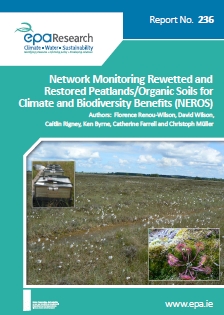
Authors: Florence Renou-Wilson, David Wilson, Caítlin Rigney, Ken Byrne, Catherine Farrell and Christoph Müller, February 2018
Year: 2018
Ireland contains large areas of peatlands that constitute some of the most ecologically diverse habitats in the country. In natural peatlands, permanently waterlogged conditions prevent the complete decomposition of dead plant material leading to the accumulation of carbon rich peat. However, less than 20 % of the original peatland area is considered to be worthy of conservation.
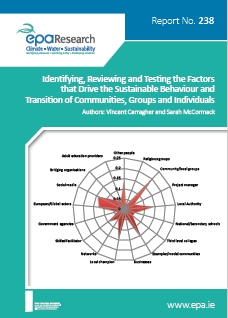
Authors: Vincent Carragher and Sarah McCormack, February 2018
Year: 2018
This research critically reviewed community interventions and sustainable-behaviour change programmes identifying drivers (enablers) adopted by those interventions. The aim was to distinguish key characteristics of success while also identifying barriers to sustainable transition and change.
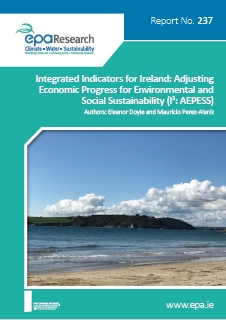
Authors: Eleanor Doyle and Mauricio Perez-Alaniz, January 2018
Year: 2018
Decoupling economic growth from environmental quality is an imperative for Ireland, as with other modern developed economies. Not only has economic growth been linked with environmental sustainability impacts, but more recently social sustainability has also been highlighted in terms of its relationship to, and impacts from, the economy.
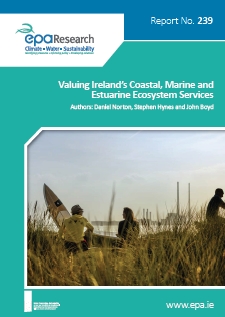
Authors: Daniel Norton, Stephen Hynes and John Boyd, January 2018
Year: 2018
This technical report demonstrates the data sources and methods that can be used to estimate the value of a number of coastal and marine ecosystem service benefits.
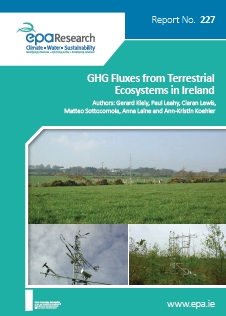
Authors: Gerard Kiely, Paul Leahy, Ciaran Lewis, Matteo Sottocornola, Anna Laine and Ann-Kristin Koehler, January 2018
Year: 2018
Irish grazed grasslands are a sink for carbon dioxide and a source for methane and nitrous oxide. Irish forests and pristine peatlands are sinks for carbon; however degraded peatlands are sources for carbon.
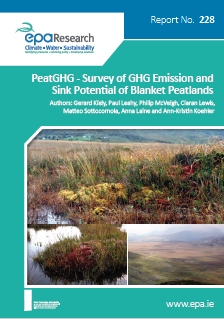
Authors: Gerard Kiely, Paul Leahy, Philip McVeigh, Ciaran Lewis, Matteo Sottocornola, Anna Laine and Ann-Kristin Koehler, January 2018
Year: 2018
Pristine peatlands are mostly sinks for carbon, while harvested or cut-away peatlands are sources of carbon. The principal pressures on Irish peatlands are associated with anthropogenic activities over the past few hundred years.
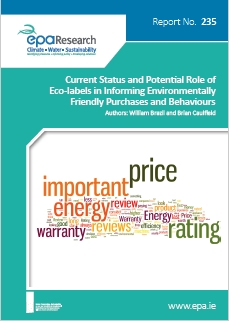
Authors: William Brazil, Brian Caulfield, December 2017
Year: 2017
Eco-labels are a widely used means of providing consumers with information regarding the environmental and energy impacts associated with various products and services. Given the opportunity that such labels represent, and the resources devoted to creating them, there is a need to ensure that they are effectively communicating the relevant information to the general public.
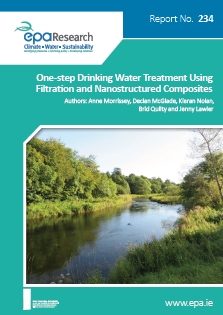
Authors: Anne Morrissey, Declan McGlade, Kieran Nolan, Brid Quilty and Jenny Lawler, December 2017
Year: 2017
This report provides a summary of the findings of the research on the design, development and testing of a novel drinking water treatment system using a combination of filtration and nanostructured composites for the removal of inorganic, organic and microbiological contaminants from water.
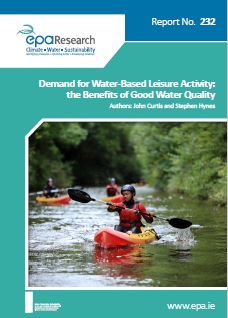
Authors: John Curtis and Stephen Hynes, November 2017
Year: 2017
The objective of this research was to determine how water-based recreational activities in Ireland are affected by differences in water quality across recreational sites.
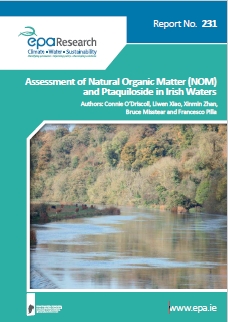
Authors: Connie O’Driscoll, Liwen Xiao, Xinmin Zhan, Bruce Misstear and Francesco Pilla, November 2017
Year: 2017
Ireland has an unacceptably high number of drinking water supplies that exceed the parametric value of 100 μg L-1 for total trihalomethanes (THMs) and has been reporting the highest non-compliance with respect to total THMs in drinking water across the 27 EU Member States.
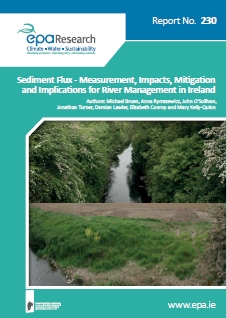
Authors: Michael Bruen, Anna Rymszewicz, John O’Sullivan, Jonathan Turner, Damian Lawler, Elizabeth Conroy and Mary Kelly-Quinn, November 2017
Year: 2017
The SILTFLUX project addressed three major objectives related to sediment pollution in rivers.
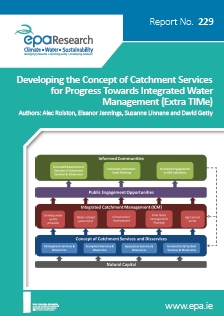
Authors: Alec Rolston, Eleanor Jennings, Suzanne Linnane and David Getty, November 2017
Year: 2017
The benefits and disservices received by people and ecosystems within catchments are called catchment services and disservices. Their delivery can be influenced by multiple factors including climate, legislative/policy and social (demographic) change.
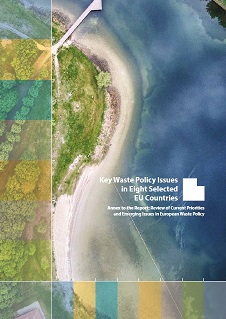
Annex to Review of Current Priorities and Emerging Issues in European Waste Policy, October 2017
Year: 2017
Annex to the Report: Review of Current Priorities and Emerging Issues in European Waste Policy
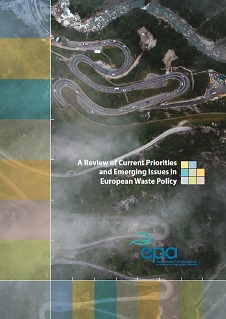
Year: 2017
This report sets out to assess key current issues, and important emerging issues, in the waste policy arena in the European Commission, and in selected Member States.
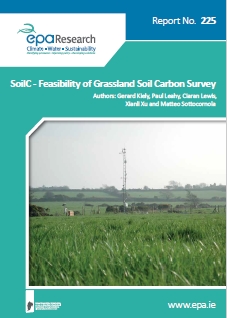
Authors: Gerard Kiely, Paul Leahy, Ciaran Lewis, Xianli Xu and Matteo Sottocornola, October 2017
Year: 2017
Research 225 on SoilC - Feasibility of Grassland Soil Carbon Survey
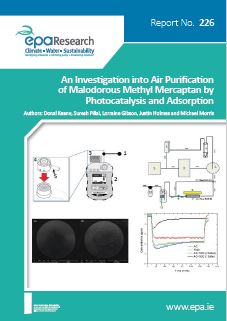
Authors: Donal Keane, Suresh Pillai, Lorraine Gibson, Justin Holmes and Michael Morris, September 2017
Year: 2017
EPA Research Report 226 on An Investigation into Air Purification of Malodorous Methyl Mercaptan by Photocatalysis and Adsorption
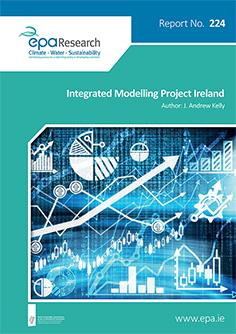
Author: J. Andrew Kelly, September 2017
Year: 2017
Research 224 on Integrated Modelling Project Ireland
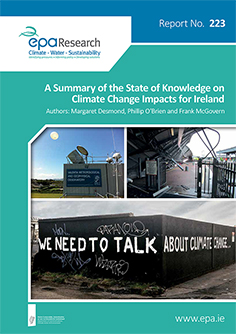
Authors: Margaret Desmond, Phillip O’Brien and Frank McGovern, September 2017
Year: 2017
Research 223: A Summary of the State of Knowledge on Climate Change Impacts for Ireland
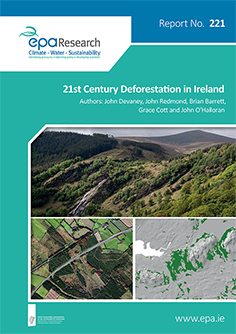
Authors: John Devaney, John Redmond, Brian Barrett, Grace Cott and John O’Halloran, September 2017
Year: 2017
Research 221 on 21st Century Deforestation in Ireland
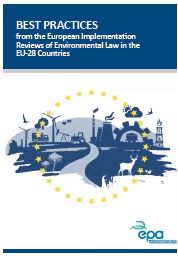
A report commissioned by the Environmental Protection Agency Research Programme, September 2017
Year: 2017
Best Practices from the European Implementation Reviews of Environmental Law in the EU-28 Countries